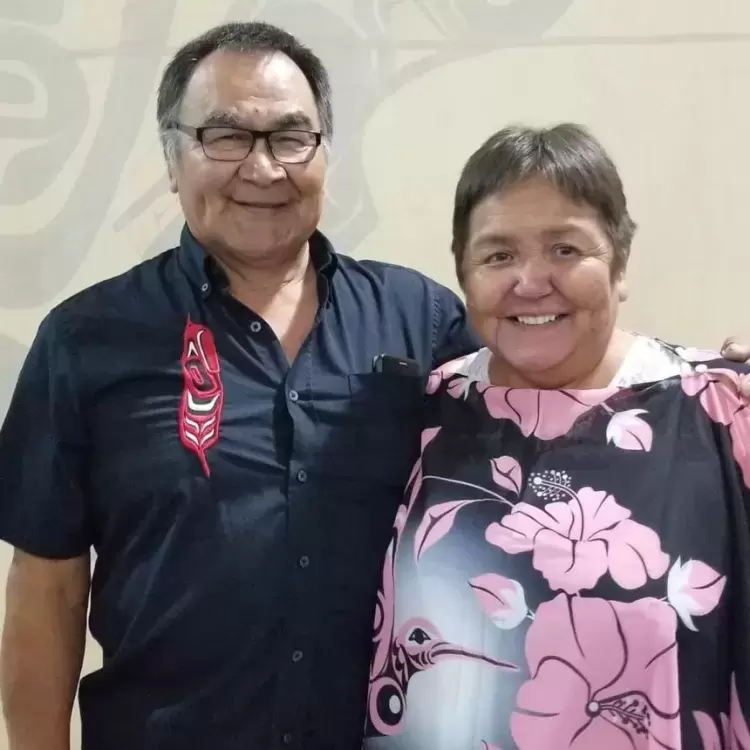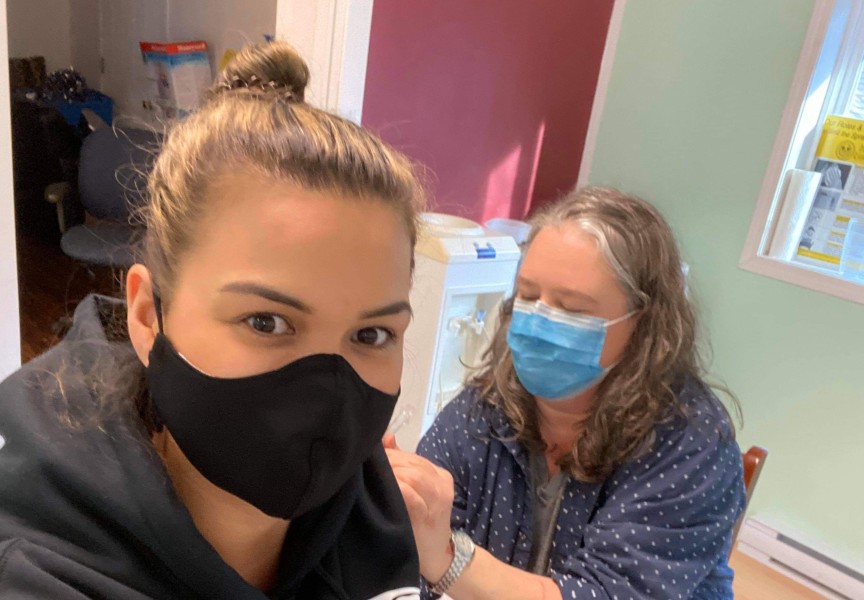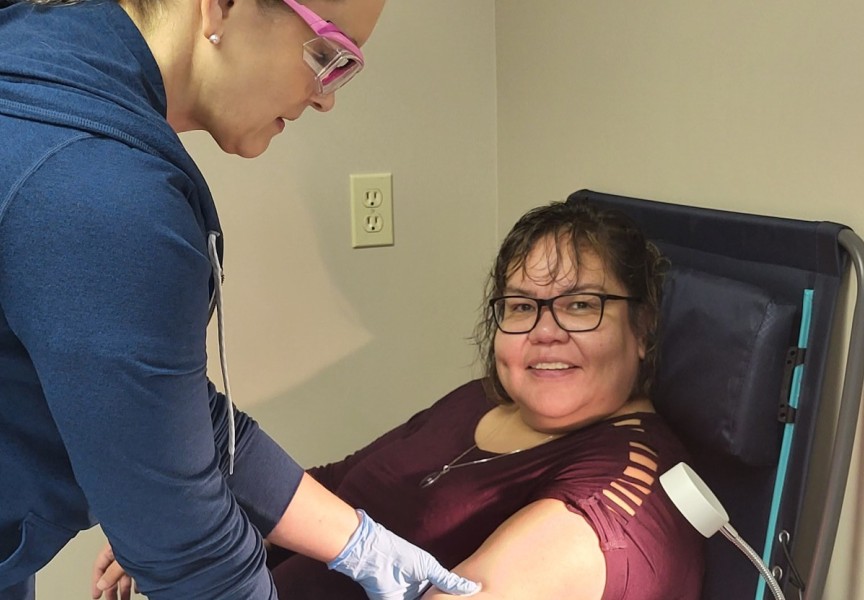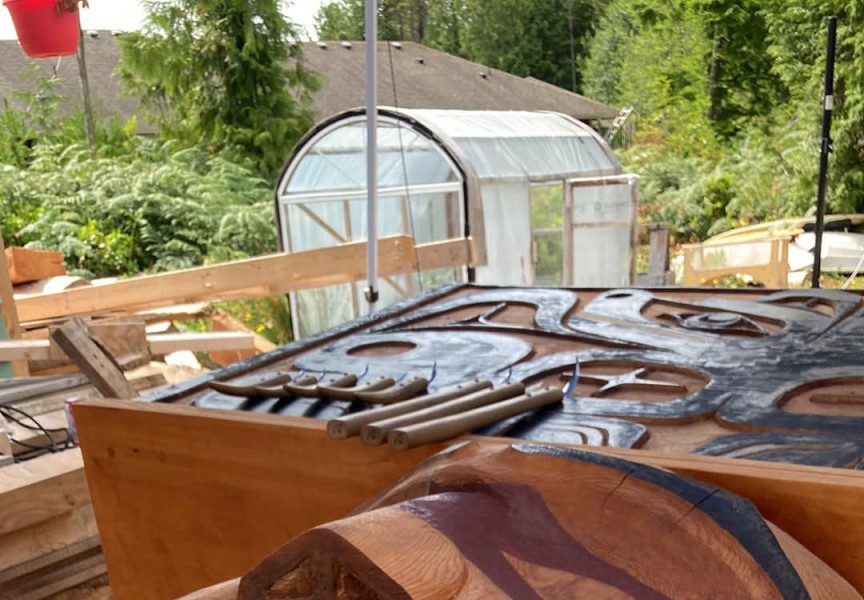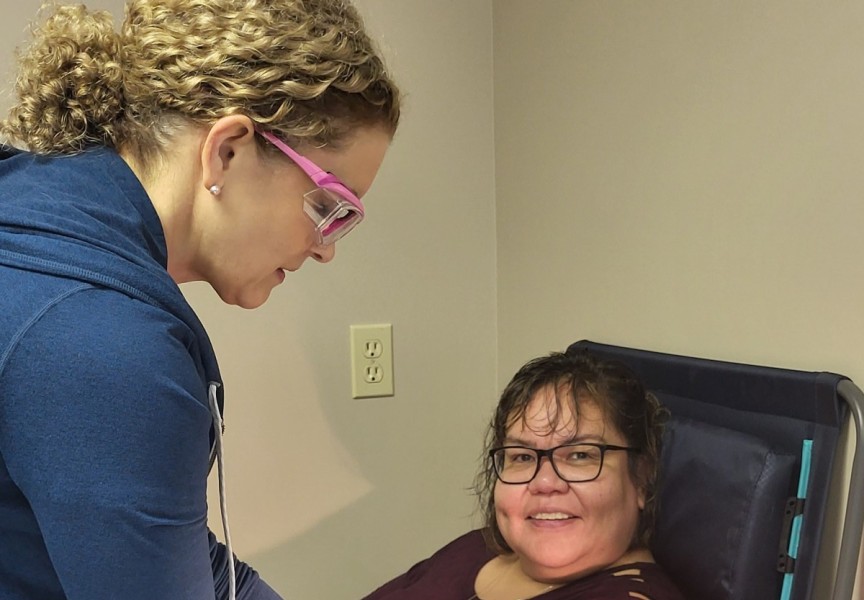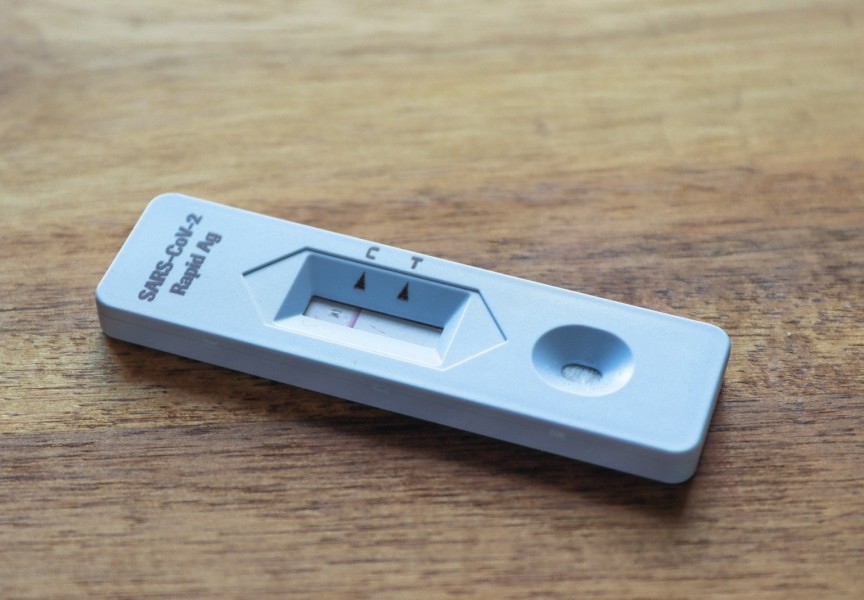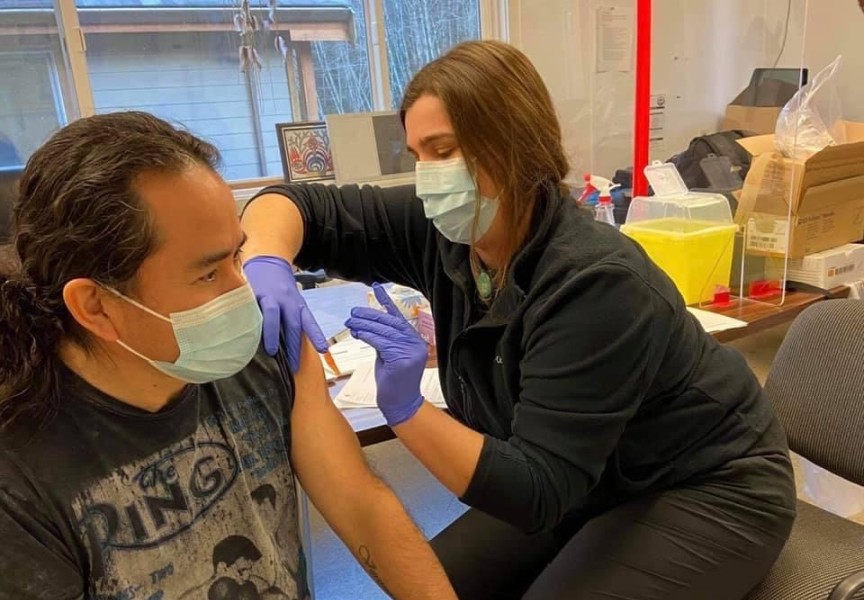An Ahousaht resident’s battle with COVID-19 is showing fundamental flaws in the health care system’s response for remote communities, after it took four visits seeking medical attention before Darlene Dick was transported to ICU.
Since Dec. 1 Dick has been in the Nanaimo Regional General Hospital’s intensive care unit, where her condition with COVID-19 has since improved, said her husband, Alec Dick. But Darlene endured a harrowing few days to get to the ICU, including trips without supervision on a water taxi, stalled testing for the novel coronavirus, and staying alone in a hotel room when her symptoms were at their worst.
The 68-year-old first sought medical attention on Nov. 26 at the Ahousaht medical clinic, where she was told she had had flu symptoms and was sent home without being given a test for COVID-19.
But over the next two days Darlene’s condition worsened, with a fever that ran from hot to cold, muscles cramps, soreness and headaches. By Nov. 28 the family sent her on a water taxi to get treatment at the hospital in Tofino, which is a 45-minute water taxi ride from Darlene’s home in Ahousaht.
In the hospital she was given a COVID-19 test, but sent back to Ahousaht before any results were available.
“Again, she was told that it was a cold,” said Alec.
But that night Darlene’s sickness became even more severe.
“At night she was really in pain. She was literally crying,” Alec recalled. “She was saying, “I want to give up, I want to give up, it’s too much’.”
On Nov. 30 the family called Ahousaht’s emergency services, who placed Darlene in a water taxi on a stretcher, alone with the vessel’s driver. The family was unable to accompany Dalene due to COVID-19 restrictions.
When they reached the Tofino dock an ambulance was waiting to bring her back to the small town’s hospital.
Daughter Ina Dick was there help get her mother off the boat, who hadn’t eaten for at least five days.
“This time she couldn’t even stand, let alone hold her head up,” said Ina. “I think my dad didn’t sleep for three days, four days, because he was being a nurse to my mom, looking after her.”
Upon arriving at the hospital Darlene was informed that her COVID test came back positive, but she wasn’t kept in the medical facility. Instead she was sent to a local hotel currently housing people who need to isolate due to coronavirus exposure.
Family weren’t permitted to accompany Darlene in the Tofino hospital, and didn’t know where Darlene was until Ina called to check up on her mother.
“The nurse said that she had an option to go back home or to isolate by herself in a hotel room. I just went off, I lost it,” said Ina. “There was no plan for anybody to go check up on her, to go see her.”
Ina found her mom in the hotel room alone, appearing as if she hadn’t moved for hours since being brought there. She was unable to rise from the bed. Ina was informed by a doctor who saw her mother that Darlene was sent to the hotel with bottles of water, a banana and a can of soup.
The daughter opened the hotel room door to bring in fresh air, noticing that Darlene wasn’t responsive to the change in temperature.
“I was cold, and it didn’t even bother her. That’s how sick she was,” said Ina. “That was the hardest thing to see, to think is this going to be the last time I can see my mom? I can’t even hold her hand or give her a hug.”
Darlene was again transported to Tofino General – the third time since when her first COVID test was done. Fortunately, a doctor there determined that the Ahousaht resident’s state required immediate attention. Darlene was rushed to the Nanaimo hospital, which unlike the Tofino facility, houses COVID-19 patients.
“To this day I thank that lady doctor,” said Alec. “Had it not been for her, I dread the thought of where my wife might be today.”
Upon arriving at the Nanaimo hospital, it was discovered that Darlene was dehydrated with high blood pressure.
“They said that she’s a very sick woman,” said Ina. “It tore my heart apart.”
Fortunately, Darlene’s conditioned improved at the Nanaimo facility. On December 11, after 10 days in ICU, her spirts had brightened with the hope that she would soon be transported to Tofino General Hospital if progress continued.
“She’s excited,” said Ina on Dec. 11. “The doctor is going to find out today if she’s COVID-free.”
Due to the extremely contagious nature of COVID-19, Alec and family have been unable to spend time with Darlene as her body fights the disease.
“Being alone by herself in the room with nobody there to be with her, it’s quite lonely,” he said.
But video chats are regularly being held over the Facetime program, allowing Darlene to see her grandchildren.
In the days leading up to Darlene’s hospitalization Alec contracted COVID-19 himself. But his symptoms have been minor, and on Dec. 11 he was deemed recovered by Island Health.
He hopes that his wife’s struggles to be tested and hospitalized serve as a lessen to the health care system, as facilities and medical professionals struggle to manage the surge of cases in B.C.’s second wave of infections during the pandemic.
“We not looking for blame, but to better the system to make sure our people are checked thoroughly,” said Alec. “I can understand isolation, but in the health situation where you can’t cope for yourself, then there has to be something else that can be put in place to make it safe for our people that are that ill.”
In a statement sent to Ha-Shilth-Sa, Island Health said that it has discussed the ordeal with the Dick family to learn from their experience.
“Island Health acknowledges that the care and support provided did not meet the expectations and needs of this patient and we respect the family’s concern for the well-being of their loved one,” stated the health authority.
“This is not a racial thing, it’s not a blame thing, it’s stressing to strengthen our system where individuals don’t have to go through this, like you’re pushed into a little dark hole and on your own,” said Alec.
“We have heard the family’s concerns about how we can better support the needs of patients in a similar situation moving ahead,” noted Island Health. “Island Health is reviewing what we have learned through our discussions and we are committed to ensuring clearer communication and processes as it relates to transport and transfers across the care continuum for COVID-19 positive individuals.”
“This could have all been prevented right from the beginning,” Ina stressed. “The least that they could have done was ship her out to Nanaimo right away.”
“I hope that our hospital changes, that people get better treatment – that they’re taken seriously, with just a common cold, the signs of a cough,” she added.

